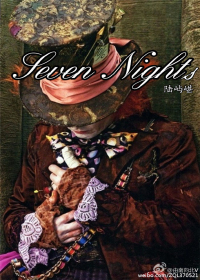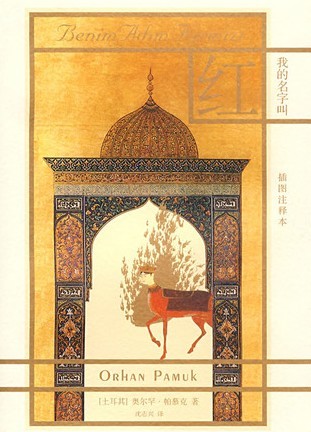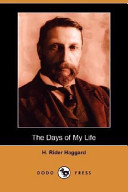my name is red-我的名字叫红-第21章
按键盘上方向键 ← 或 → 可快速上下翻页,按键盘上的 Enter 键可回到本书目录页,按键盘上方向键 ↑ 可回到本页顶部!
————未阅读完?加入书签已便下次继续阅读!
lively body; her mouth which never stopped moving; and her eyebrows and
eyes which twitched madly and signaled to me; indeed; this is how she was
among the shopping slave women; the women wearing the faded and loose
caftans of poor neighborhoods and among the crowds that had lost
themselves amid carrots; quinces and small bundles of onions and turnips。
She stuffed the letter I gave her into her shalwar pants with an adept and
mysterious gesture; as if the whole market were spying upon us。 She told me
that Shekure was thinking of me。 She took her baksheesh and when I said;
“Please; make haste and deliver it straightaway;” she indicated that she still
had quite a lot of work to do by gesturing toward her bundle and said that she
only could deliver the letter to Shekure toward midday。 I asked her to tell
Shekure that I’d gone to pay visits to the three young and renowned master
miniaturists。
69
I AM CALLED “BUTTERFLY”
The midday prayers had yet to be called。 A knock at the door: I opened it to
find Black Effendi; who was among us for a while during our apprenticeships。
We embraced and kissed on the cheeks。 I was wondering whether he’d
brought some word from his Enishte; when he said that he wanted to look at
the pages I’d been illustrating and at my paintings; that he’d called in
friendship; and was going to direct a question to me in the name of Our
Sultan。 “Very well;” I said; “ to answer?”
He told me。 Very well; then!
Style and Signature
“As long as the number of worthless artists motivated by money and fame
instead of the pleasure of seeing and a belief in their craft increases;” I said;
“we will continue to witness much more vulgarity and greed akin to this
preoccupation with ”style‘ and “signature。”“ I made this introduction because
this was the way it is done; not because I believed what I said。 True ability and
talent couldn’t be corrupted even by the love of gold or fame。 Furthermore; if
truth be told; money and fame are the inalienable rights of the talented; as in
my case; and only inspire us to greater feats。 But if I were to say this openly;
the mediocre illustrators in the miniaturists’ division; rabid with envy; would
pounce upon me; so; to prove that I love this work more than they themselves
do; I’ll paint the picture of a tree on a grain of rice。 I’m well aware that this
lust for ”style;“ ”signature’ and “character‘ has e to us all the way from
the East by way of certain unfortunate Chinese masters who’ve been led astray
under the influence of the Europeans; by pictures brought there from the West
by Jesuit priests。 Nevertheless; let me tell you three parables that prise a
recital on this topic。”
70
Three Parables on Style and Signature
ALIF
Once upon a time; to the North of Herat; in a mountain castle; there lived a
young Khan who was fascinated with illuminating and painting。 This Khan
loved only one of the women in his harem; and this striking Tatar woman;
whom he loved madly; loved him in return。 They engaged in such bouts of
lovemaking; sweating until morning; and lived in such ecstasy that their only
wish was to live eternally。 They soon discovered the best way to realize their
wish was by opening books and gazing; for hours and hours and days on end;
upon the astounding and flawless pictures of the old masters。 As they stared at
these perfect renderings; unfalteringly reproduced; they felt as though time
would stop and their own felicity would mingle with the bliss of the golden
age revealed in the stories。 In the royal bookmaker’s workshop; there was a
miniaturist; a master of masters; who made the same flawless pieces over and
over for the same pages of the same books。 As was his custom; the master
depicted the anguish of Ferhad’s love for Shirin; or the loving and desirous
glances between Leyla and Mejnun; or the duplicitous; suggestive looks Hüsrev
and Shirin exchanged in that fabled heavenly garden—with one slight
alteration however: In place of these legendary lovers; the artist would paint
the Khan and his Tatar beauty。 Beholding these pages; the Khan and his
beloved were thoroughly convinced that their rapture would never end; and
they showered the master miniaturist with praises and gold。 Eventually;
however; this adulation caused the miniaturist to stray from good sense;
incited by the Devil; he dismissed the fact that he was beholden to the old
masters for the perfection of his pictures; and haughtily assumed that a touch
of his own genius would make his work even more appealing。 The Khan and
his beloved; considering these innovations—the personal stylistic touches of
the master miniaturist—nothing but imperfections; were deeply disturbed by
them。 In the paintings; which the Khan observed at length; he felt that his
former bliss had been disrupted in numerous ways; and he grew increasingly
jealous of his Tatar beauty who was depicted with the individual touch of the
painter。 So; with the intention of making his pretty Tatar jealous; he made love
with another concubine。 His beloved was so bereft upon learning of this
betrayal from the harem gossips that she silently hanged herself from a cedar
tree in the harem courtyard。 The Khan; understanding the mistake he’d made
and realizing that the miniaturist’s own fascination with style lay behind this
terrible incident; immediately blinded this master artist whom the Devil had
tempted。
71
BA
Once upon a time in a country in the East there was an elderly Sultan; a lover
of illustrations; illuminations and miniatures; who lived happily with his
Chinese wife of unsurpassed beauty。 Alas; it soon happened that the Sultan’s
handsome son from a previous marriage and the Sultan’s young wife had
bee enamored of each other。 The son; who lived in terror of his treachery
against his father; and ashamed of his forbidden love; sequestered himself in
the bookmaker’s workshop and gave himself over to painting。 Since he painted
out of the sorrow and strength of his love; each of his paintings was so
magnificent that admirers couldn’t distinguish them from the work of the old
masters。 The Sultan took great pride in his son; and his young Chinese wife
would say; “Yes; magnificent!” as she looked upon the paintings。 “Yet; time will
surely pass; and if he doesn’t sign his work; no one will know that he was the
one responsible for this majesty。” The Sultan responded; “If my son signs his
paintings; won’t he be unjustly taking credit for the techniques and styles of
the old masters; which he has imitated? Moreover; if he signs his work; won’t
he be saying ”My paintings bear my imperfections‘?“ The Chinese wife; seeing
that she wouldn’t be able to convince her elderly husband on this issue of
signature; was; however; eventually successful in persuading his young son;
confined; as always; in the bookmaker’s workshop。 Humiliated at having to
conceal his love; persuaded by his pretty young stepmother’s ideas and with
the Devil’s coercion; the son signed his name in a corner of a painting;
between wall and grass; in a spot he assumed was beyond notice。 This; the first
picture he signed; was a scene from Hüsrev and Shirin。 You know the one: After
Hüsrev and Shirin are wed; Shiruye; Hüsrev’s son from his first marriage; falls
in love with Shirin。 One night; entering their bedchamber through the
window; Shiruye swiftly sinks his dagger into his father’s chest。 When the
Sultan saw his son’s depiction of this scene; he was overe with the sense
that the painting embodied some flaw; he’d seen the signature; but wasn’t
conscious
![(伪犯罪心理同人)[伪犯罪心理]gimmick game人封面](http://www.8kbook.com/cover/2/2722.jpg)
![[秘密(世界上最神奇的潜能开发训练)][1].(美)华莱士·d.沃特斯&封面](http://www.8kbook.com/cover/noimg.jpg)



